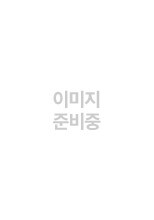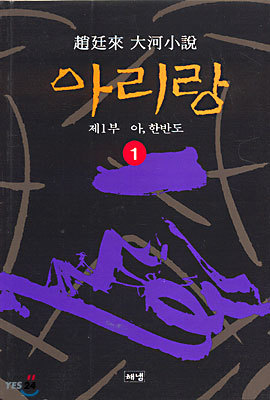Jo Jeong-rae (born 1943) is a South Korean novelist.
Life
Jo Jeong-rae was born at Sonamsa Temple in Suncheon, South Jeolla Province. His father Jo Jong-hyeon was a married Buddhist priest, a result of Japanese colonial policy at the time, and also a sijo poet. As a child Jo Jeong-rae would follow his father around and repeat the sijo he was fond of quoting, sparking his early interest in literature. The family moved to Nonsan in 1949, but evacuated to the South when the Korean War broke out. As an outsider, Jo Jeong-rae was unpopular with the local children and got into frequent fights.
Jo attended Posung High School in Seoul and studied Korean literature at Dongguk University, graduating in 1966. In 1967 he married the poet Kim Cho-hye. Jo found work as a high school teacher and wrote in his spare time. He made his literary debut in 1970, publishing the short story "Numyeong" (누명 A False Charge) in Hyundae Munhak, marking the beginning of an extremely prolific career.
Jo Jeong-rae's popular multi-volume novels Taebaeksanmaek (태백산맥 Taebaek Mountain Range) and Arirang (아리랑 Arirang), both of which have come to be considered modern classics since their publication in the 1980s, are widely considered to be the epitome of his talent. With the publication of his novel Hangang (한강 Han River), Jo finally completed his trilogy of works dedicated to modern Korean history. Sales of the series reached record-breaking numbers in South Korea, selling over 10 million copies.
Writing
Jo Jeong-rae's epic historical trilogy, begun in 1983 and eventually completed in 2002, comprises Taebaeksanmaek, Arirang, and Hangang. Each novel is over ten volumes in length, and each deals with different aspects of the turbulent history of Korea in the modern era. The first novel, Taebaeksanmaek, examines the five-year period between the liberation of Korea from Japanese colonial rule in 1945 to the outbreak of the Korean War in 1950, with detailed flashbacks and backstory contextualizing the deep ideological conflict that culminated in violence and the division of Korea. The second novel, Arirang, is technically a prequel to Taebaeksanmaek, and covers the Japanese colonial period of Korean history.
One of the primary themes in Jo Jeong-rae's work, concern regarding the socio-economic roots of the division of Korea and the search for Korean reunification, is also present in his other, shorter works of fiction, such as "Han geu geuneurui jari" (한 그 그늘의 자리 Sorrow, That Shaded Place), "Yuhyeongui ttang" (유형의 땅 Land of Exile), "Inganui gyedan" (인간의 계단 Human Stairs), and "Baktoui hon" (박토의 혼 The Soul of a Barren Land). Many of his earlier works, however, such as "Cheongsandaek" (청산댁 A Woman from Cheongsan), "Pongnyeok gyosa" (폭력 교사 The Violent Instructor), "Bitaljin eumji" (비탈진 음지 The Shaded Slope), "Cheondongseol sidae" (천동설 시대 The Age of Geocentrism), and "Ibangjidae" (이방지대 Foreign Land), tend to reconstruct stories of traditional rustic life, targeting and satirizing the various absurdities of life in a much more general fashion.
Jo Jong-rae wurde im Seonam-Tempel in der Provinz Jeollanam geboren. Als er fünf Jahre alt war, brach der Koreakrieg aus, und seine Familie floh gen Süden. 1970 machte er sein Debüt als Schriftsteller. Seine Erzählung Verruf wurde in der Juniausgabe 1970 des Literaturmagazins „Hyeondae Munhak“ (Gegenwartsliteratur) veröffentlicht, im Dezember desselben Jahres Reisebericht eines Lehrers. Zu seinen bekanntesten Werken gehört der mehrbändige Roman Taebaek-Gebirge, der verfilmt wurde (Das Taebaek Gebirge, 1994. Regie: Im Kwon-taek).
Sus populares novelas de varios volúmenes La cordillera Taebaek y Arirang, que son clásicos modernos desde su publicación en los años ochenta, están considerados como el cénit de su talento. Con la publicación de El río Han en 2002, completó la trilogía de obras sobre la historia moderna coreana. Se ha vendido el número récord de diez millones de copias en Corea de estas novelas.5 Jo Jung-Rae es conocido como escritor de la trilogía histórica La cordillera Taebaek (Taebaek sanmaek, 1983-1989), Arirang y la más reciente El río Han (Hangang). Cada una está compuesta de diez volúmenes y tratan de diferentes aspectos de la turbulenta historia de la época moderna de Corea. La cordillera Taebaek examina el periodo de cinco años entre la liberación de Corea del Imperio colonial japonés (1945) y el inicio de la Guerra de Corea (1950). Para caracterizar el profundo conflicto ideológico de este periodo que terminó en violencia, el escritor vuelve atrás en la historia al periodo colonial y a los últimos años de la dinastía Joseon. Sobre la base de una meticulosa investigación, revela las contradicciones estructurales que provienen del conflicto de clases de la sociedad coreana y deja claro que la Guerra de Corea fue causada por la intensificación de esas contradicciones a través de la ideología. De este modo, critica la falacia lógica de que la división de Corea se debe solo a razones políticas. La cordillera Taebaek sugiere que la división peninsular se podrá superar solo cuando se resuelvan los conflictos estructurales económicos y sociales de la sociedad coreana. Arirang trata del periodo colonial anterior al del fondo histórico de La cordillera Taebaek.6 Su preocupación por la raíz socioeconómica de la división de Corea y la búsqueda de soluciones para superar esta tragedia nacional también caracteriza a sus obras cortas de ficción. "Tristeza, ese lugar sombrío" (Han, geu geuneurui jari), "Tierra de exilio" (Yuhyeongui ttang), "Escalera humana" (Inganui gyedan) y "El alma de la tierra estéril" (Baktoui hon) tratan este tema de diferente forma. Sus obras anteriores suelen reconstruir el espacio de la vida tradicional y tratan de lo absurdo de la vida de una forma más general. "La mujer de Cheongsan" (Cheongsan daek), "El profesor violento" (Pongnyeok gyosa), "La colina sombría" (Bitaljin eumji), "La era del geocentrismo" (Cheondongseol sidae) y "Tierra extranjera" (Ibang jidae) proporcionan buenos ejemplos de esta tendencia.
Ses romans en plusieurs volumes les plus populaires sont La chaîne de montagnes Taebaek (Taebaek sanmaek) et Arirang, qui sont devenus des classiques de la littérature moderne depuis leur publication dans les années 1980, ces récits sont considérés comme la quintessence de son talent. Avec la publication de Le fleuve Han (Hangang) en 2002, Jo a terminé sa trilogie d'ouvrages sur l'histoire moderne coréenne. Les ventes ont atteint un nombre record en Corée avec plus de 10.000.000 d'exemplaires vendus3.Jo Jeong-rae est donc surtout connu pour être l'auteur de la trilogie épique sur l'histoire coréenne avec La chaîne de montagnes Taebaek (Taebaek sanmaek, 1983-1989), Arirang, et récemment Le fleuve Han (Han-gang). Chacun de ses romans est composé de plus de dix volumes, et traitent des différents aspects de l'histoire de la Corée durant l'ère moderne. La chaîne de montagnes Taebaek examine la période de cinq ans entre la libération de la Corée de la domination coloniale japonaise (1945) jusqu'au déclenchement de la guerre de Corée (1950). Afin de caractériser le profond conflit idéologique entre les deux Corée qui a éclaté au cours de cette période, l'auteur est remonté jusque dans l'histoire de la période coloniale, ainsi que dans les dernières années de la dynastie Joseon1. Grâce à ces recherches méticuleuses, il a révèlé les contradictions structurelles, telles que celles qui découlent de la lutte des classes dans la société coréenne. Il a montré en quoi la guerre de Corée a provoqué l'intensification des contradictions idéologiques en Corée. Cette prise de conscience constitue la base à partir de laquelle il critique l'erreur de la partition coréenne. La chaîne de montagnee Taebaek suggère ainsi que la division nationale ne peut être surmontée sans aborder les conflits structurels les plus fondamentaux dans la société coréenne. Arirang traite quant à lui de la période coloniale.
1943年8月17日、全羅南道昇州郡(現在の順天市)双岩面仙巌寺に生まれる。父は趙宗玄、母は朴聖純。4男4女の次男である。父は僧侶であり、仙巌寺の副住職を務めていた。趙もまた、幼年期を仙巌寺で暮らす。1947年、保守的な住職と父との間で悶着があり、趙一家は仙巌寺を離れ、順天邑幸洞に引っ越す。1948年、麗水・順天事件が起こる。街には共産派の死体が散らばり、父は社会主義的思想を持っていたため当局に連行された。この事件は幼い趙の記憶に鮮明に残ることになる。父は1950年の冬に無罪放免で釈放されたが、廃人のようになってしまった。 1949年、順天南国民学校に入学するも1950年に朝鮮戦争が勃発し、田舎に疎開する。1951年に家に戻るも1・4後退で再び避難する。通学を再開できたのは1952年からであった。1956年、光州西公立中学校(現:光州第一高等学校)に入学、1959年にはソウルの普成高等学校に進学する。1960年4月19日、四月革命が起こり、授業は中断。この間、アーネスト・ヘミングウェイや、アルベール・カミュ、ギ・ド・モーパッサンなど文学作品に耽溺した。他校生との農村活動を兼ねた文芸活動も行い、詩、小説、童話などを習作し始める。1962年、東国大学校国文科に入学。大学で洪申善、姜熙根らと会う。初めは詩を習作するも小説家になることを志し、1963年に「創作文学会」を結成した。呉永寿を招聘して講義をしてもらったり、また「小説家を大学講師に呼ぶ」ことを要求するデモを起こすなど、活動的な会であったようだ。呉永寿とは師弟の関係になる。また、この頃、金初蕙と出会い、恋愛をする。1966年、陸軍に入隊、KATUSA(米国軍に配属された韓国軍)に配属される。入隊中、1967年1月29日、金初蕙と結婚する。1969年3月に除隊すると、教師の職を求めるが、就職できず、仕事のないまま、習作を続ける。 1970年に、『現代文学』に呉永寿の推薦で短篇「陋名」「先生님 紀行」が掲載されることになり、文壇にデビューする。創作活動に没頭する一方、1972年、中京高等学校の教師の職を得る。中京高校は1973年の10月維新の余波で辞めることになったが、韓国文人協会の発行する『月刊文学』の編集の仕事を貰い、執筆活動と平行して仕事をこなす。しかし、編集業に携わる中で政治的な意図を持った非難や誤解を受けることとなり、1976年1月、文人協会を離れる。その後、『小説文芸』の運営を引き受け、8号と9号の発行に携わった。1978年、「民芸社」を設立し、本格的に出版業を始める。しばらく、出版業の仕事のため、創作活動から遠ざかるが、自らの本業は作家であることを見つめなおし、1981年から、創作活動に時間を割くことにする。この年、「유형의 땅 (流刑の地)」で現代文学賞を受賞、翌1982年、「인간의 문 (人間の門)」で大韓民国文学賞を受賞する。1983年から1989年まで、1万6千5百ページに及ぶ長篇「太白山脈」を書き上げ、文壇で絶賛を浴びた。その後も精力的に創作活動を続けている。
조정래(1943~ )는 대한민국의 소설가다.
생애
조정래는 1943년 전라남도 승주군에서 태어났다. 1959년 서울로 이사하여 보성고등학교에 입학, 1962년 졸업 후 동국대학교 국어국문학과에 입학했다. 대학 졸업 후 곧바로 입대했으며 다음 해 시인 김초혜와 결혼했다. 1969년에 제대했다.
1970년 동구여자상업고등학교에서 국어 교사로 근무하면서 《현대문학》 잡지에 단편소설 〈누명〉, 〈선생님 기행〉을 잇따라 발표하여 작품 활동을 시작했다. 1972년에 중경고등학교로 전근하였으나, 정부를 비판한 작품으로 인해 학교 교장과 마찰을 빚었고, 유신헌법이 만들어진 여파로 교직을 떠났다.
1973년 잡지 《월간문학》의 편집장이 되었고 1977년에는 민예사의 대표를 맡았다. 1980년 광주민주화운동이 일어난 직후에 광주를 방문하고 장편소설 《태백산맥》을 집필하기로 했다. 《태백산맥》은 1983년 9월부터 연재를 시작하여 1989년에 완간, 단행본 전10권으로 출간되었다. 이 작품으로 인해 조정래는 국가보안법 위반 혐의로 고발당했고, 2005년에 이르러 무혐의 처분을 받게 되었다.
조정래는 《태백산맥》(1989)에 그치지 않고 《아리랑》(1995), 《한강》(2002)과 같은 대하장편소설을 계속해서 연재, 출간했으며, 《정글만리》(2013), 《천년의 질문》(2019) 등을 꾸준히 출간하며 왕성한 작품 활동을 보이고 있다.
작품세계
조정래의 초기 작품들은 주로 식민지 시대와 한국 전쟁의 고통을 다루었으며, 계층 간 대립과 빈부의 갈등, 가난과 한 등이 서로 얽혀있다. 예컨대, 초기 단편 소설 〈청산댁〉은 여성 주인공의 한 맺힌 삶을 묘사하고 있는데, 그것은 단순히 개인의 비극이 아니라 현실과 사회, 전쟁과 역사가 자리하고 있음을 알 수 있다. 단편 소설 〈유형의 땅〉은 한국 전쟁의 상처를 보다 구체화하고 있다. 이 작품의 주인공은 전쟁을 거치며 삶의 터전이었던 고향을 잃고, 자기 존재의 뿌리가 되는 가족마저 해체된다. 거대한 이데올로기와 역사로 인해 파괴되는 개인의 삶에 대한 질문을 던지는 작품이다.
조정래의 초기 작품들이 작가 자신의 체험을 배제한 채 사회의식에 주로 초점을 맞추고 있었다면, 장편소설 《불놀이》(1983) 같은 작품에 이르러서 작가는 자신의 문학적인 주제에 역사의식을 부여하고 통합적인 구상을 한다. 특히 이 시기 발표한 대하장편소설 《태백산맥》은 조정래 문학의 정점이면서 동시에 해방 이후 분단 문학의 역사가 일구어낸 하나의 성과라는 평가를 받는다. 작품은 민족 분단, 한국 전쟁으로 이어지는 민족사의 격동기를 시대적 배경으로 하여 분단의 현실과 그러한 상황 전개가 갖는 역사적인 의미를 확인한다. 《아리랑》은 한국의 근대화 과정을 다루고 있는 작품이다. 동학농민운동 시기에서부터 1945년 해방까지의 기간을 배경으로 하여 한국의 수난사와 투쟁사를 그리고 있다.
주요 작품
1) 전집
《조정래문학전집》, 해냄출판사, 1999.
2) 소설집
《어떤 전설》(부부 작품집), 범우사, 1972.
《황토》, 현대문학사, 1974.
《20년을 비가 내리는 땅》, 범우사, 1977.
《한, 그 그늘의 자리》, 태창문화사, 1978.
《허망한 세상 이야기》, 삼중당, 1980.
《유형의 땅》, 문예출판사, 1982.
《어머니의 넋》, 한국문학사, 1988.
《메아리 메아리》, 일신서적, 1994.
《이면하는 벽》, 해냄, 2012.
2) 장편소설
《대장경》, 민예사, 1981.
《불놀이》, 문예출판사, 1983.
《태백산맥》(전10권), 한길사, 1989.
《아리랑》(전12권), 해냄, 1995.
《한강》(전10권), 해냄, 2002.
《인간연습》, 실천문학사, 2009.
《비탈진 음지》, 해냄출판사, 2011.
《정글만리》(전3권), 해냄출판사, 2013.
《허수아비춤》, 해냄출판사, 2015.
《풀꽃도 꽃이다》(전2권), 해냄출판사, 2016.
《천년의 질문》, 해냄출판사, 2019.
수상 내역
1981년 제27회 현대문학상
1982년 대한민국문학상
1984년 소설문학작품상
1988년 성옥문화상
1989년 동국문학상
1991년 단재문학상
1998년 제1회 노신문학상
2001년 광주시민문화예술상
2003년 제1회 동리상
2003년 제7회 만해대상
2006년 제11회 현대불교문학상 소설부문
2014년 제1회 심훈문학상
2017년 은관문화훈장





